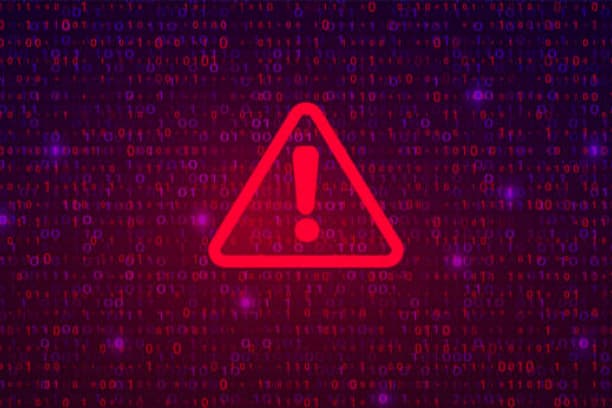Encryption Options in Bitcoin Wallets: Improving Security
With the popularity of cryptocurrency, securing your money is becoming increasingly important. As one of the most popular digital currencies, Bitcoin's wallet security is a major concern for users. Have you ever worried about the security of your Bitcoin wallet? Whether it's hacking, lost passwords or lost wallets, these risks can put your digital assets at risk. Today, we're going to look at how you can better protect your assets by improving the security of your Bitcoin wallet. It's not just about preventing theft, it's about having peace of mind when handling and managing your Bitcoin.

Choosing Strong Passwords: Basic and Critical Protection Measures
Strong passwords are the first line of defense in securing your Bitcoin wallet. Many users are accustomed to setting simple, easy-to-remember passwords that can be easily cracked, giving hackers an opportunity to take advantage of them. To increase security, you should choose a combination of at least 12-digit characters, letters and special symbols, and avoid using common one-word phrases or easy-to-guess information such as birthdays. Going one step further, you can use a password management tool to generate and save high-strength passwords, which is not only secure but also prevents you from forgetting them.
Enable Dual Authentication (2FA)
In addition to strong passwords, enabling Dual Authentication (2FA) is a very effective security measure. 2FA can effectively prevent hackers from using stolen passwords for unauthorized logins. Usually, 2FA requires users to enter a one-time verification code generated by the phone or app after entering the password. This way, even if hackers get your password, they still can't log in or make transactions. Therefore, regardless of whether your Bitcoin wallet provider mandates 2FA to be enabled or not, you should take the initiative to turn on this feature to enhance the security of your funds.
Cold wallet vs. hot wallet: choosing the best fit for your needs
When choosing a Bitcoin wallet, it is important to understand the difference between a cold wallet and a hot wallet. A hot wallet is a wallet that is connected to the internet and is usually used for day-to-day transactions, but is also relatively susceptible to hacking. Cold wallets, on the other hand, are offline wallets that are not directly connected to the network, which gives them a huge advantage in terms of protection against hacking. For long-term holders or users who do not plan to trade frequently, cold wallets are a safer choice. For frequent traders, you can choose hot wallets, but you should be more careful with the security settings, such as enabling 2FA and setting up strong passwords.
Hard wallets: the safest option
If you want to further enhance the security of your Bitcoin wallet, using a hard wallet is the best option. A hard wallet is a physical device designed to store cryptocurrency and is completely isolated from the network, meaning that even if your computer or cell phone is compromised, the funds in your hard wallet are still safe. Commonly available hardware wallets such as Ledger and Trezor offer advanced encryption technology and backup capabilities, making them the best choice for long-term Bitcoin holdings.
Regular backups: preventing accidental loss
Once a Bitcoin wallet is lost or damaged, the funds cannot be recovered. Therefore, it is very important to back up your wallet's private key and recovery seeds on a regular basis. Many wallets offer a backup feature that usually generates a set of recovery seeds, which should be kept safe and away from networked devices. If you use a cold wallet or a hard wallet, keep the recovery seeds in a safe place and do not expose them to others. After backing up, it's a good idea to store your backup files in a different location to protect against the risk of natural disasters or theft.

Diversification of reserves: risk reduction
In addition to a single backup, decentralized storage of your backup data is also a good way to go. For example, you can divide Recovery Seeds into several parts and store them in different places, or even choose to put them in a trusted third-party organization. This way, even if one part of the backup is lost or stolen, the overall security will not be compromised. Such measures can further reduce the risk of losing your Bitcoin wallet and ensure that your assets are better protected.
Beware of Phishing Attacks and Fraudulent Websites
With the rapid development of the cryptocurrency market, phishing attacks and fraudulent websites have become an important threat to the security of Bitcoin wallets. Many criminals set up fake trading platforms or wallet services to lure users into entering private keys or login credentials in order to steal funds. Therefore, users must be very careful to avoid clicking on links from unknown sources and only operate on official websites. Never trust links from strangers or unknown websites, and always stay alert for phishing sites.
How do I recognize a phishing site?
The first step in recognizing a phishing site is to check the URL address of the site. Legitimate cryptocurrency trading platforms and wallet sites usually use the HTTPS protocol and the URL should be correct. If there are spelling errors or variations in the URL, it is likely to be a scam site. Be wary of promotional messages from email or social media, especially those that ask for your private information.
Regularly check and update wallet security settings
Finally, it is essential to check and update the security settings of your Bitcoin wallet on a regular basis. With advances in security technology and the emergence of new attacks, updating your wallet's security settings on a regular basis ensures that your funds are kept in the safest possible state. Many wallet service providers offer regular security upgrades, so be sure to update your wallet as soon as possible and check to see if any new security features are available.
Sensitization to emerging threats
Due to the rapid development of the cryptocurrency space, new security threats are emerging. For example, more and more exchanges or wallet services are starting to support multi-signature technology, which is a much more advanced form of security than traditional wallets, and is effective in preventing the theft of funds. Therefore, being sensitive to new technologies and applying them to your Bitcoin wallet will help increase the security of your funds.
Frequently Asked Questions Q&A
1. what should I do if I lose my private key to my Bitcoin wallet?
If the private key is lost, the funds cannot be recovered, so it is highly recommended to back up the private key or recover the seed as soon as you set up your wallet. If you do not back up your private key, you will not be able to recover your Bitcoin funds.
2. How to choose the right Bitcoin wallet?
When choosing a Bitcoin wallet, consider security, ease of use, and whether it supports the desired features. Hot wallets are good for daily transactions, while cold wallets are better for long-term bitcoin storage.
3. How do I check if my Bitcoin wallet has been attacked?
If you notice an unusual decrease in funds in your wallet, or a transaction that was not initiated, you should immediately check your wallet's security settings and contact your service provider.














